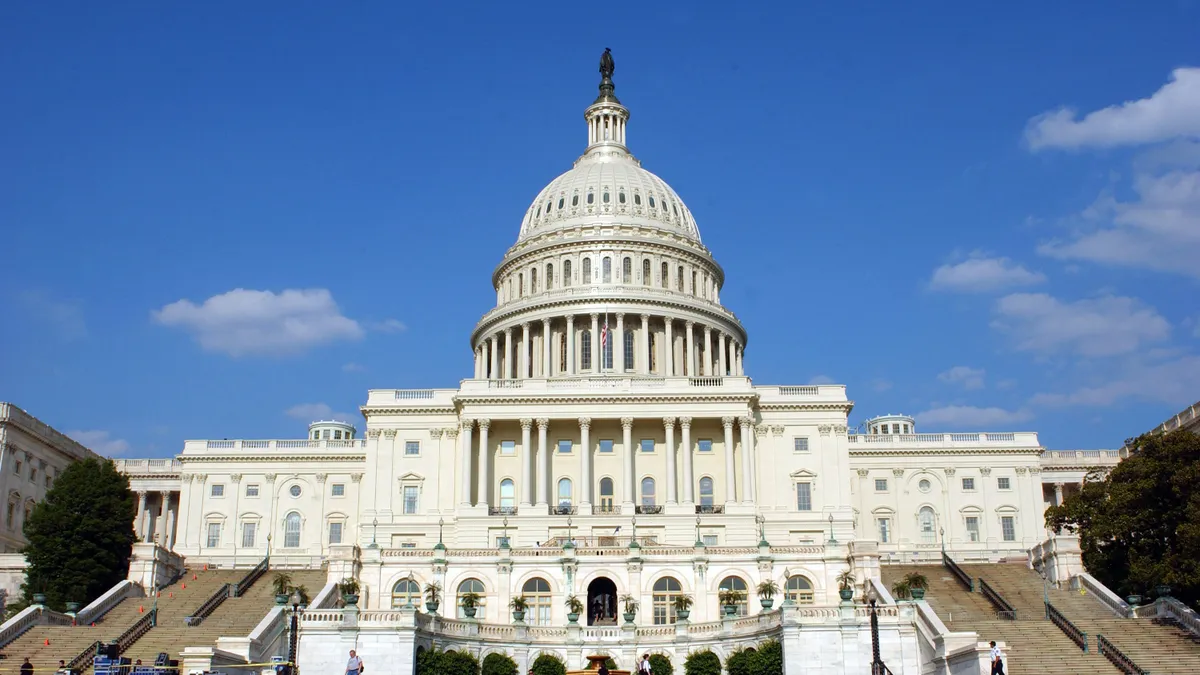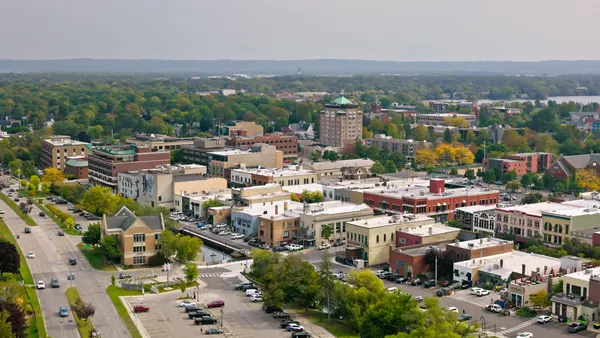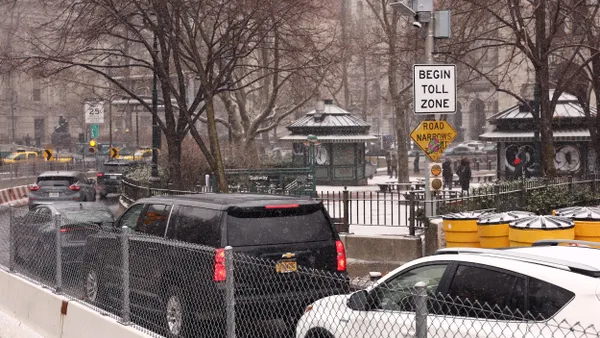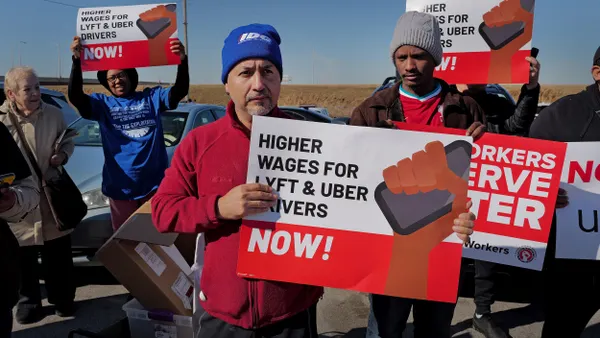Dive Brief:
- The U.S. House of Representatives passed the Infrastructure Investment and Jobs Act (IIJA) late Friday with $550 billion in new federal spending. Coming nearly three months after the Senate sent the $1.2 trillion bipartisan infrastructure bill to the lower chamber, the 228-206 vote included 13 Republicans voting in favor and six progressive Democrats voting against.
- The IIJA devotes $110 billion to the nation’s roads and bridges, $66 billion to rail including Amtrak, $39 billion to public transportation and $7.5 billion for electric vehicle (EV) charging stations. The $284 billion in total transportation spending also includes monies for ports and waterways, road safety projects, airports and reconnecting communities.
- U.S. Transportation Secretary Pete Buttigieg called it a "remarkable achievement" in a statement. But while Democrats' $1.75 trillion Build Back Better Act moved forward on a procedural vote, passage of the reconciliation bill is far from certain.
Dive Insight:
After months of contentious wrangling among progressive and centrist Democrats, the Infrastructure Investment and Jobs Act — a key piece of President Joe Biden’s legislative agenda — passed Congress late Friday night.
The American Society of Civil Engineers, whose 2021 report card rated America’s infrastructure a mediocre C-, tweeted: "At long last, the bill has passed!" The U.S. Chamber of Commerce also cheered the bill, while remaining opposed to the reconciliation bill.
Joan Claybrook, former administrator of the National Highway Traffic Safety Administration, in a statement emailed to Smart Cities Dive from the Advocates for Highway and Auto Safety, praised the inclusion of a requirement for automatic emergency braking systems in new cars and trucks, a feature which safety experts said could help reduce the surge in traffic deaths seen in the first half of 2021. In the same email, Alan Maness, vice president of federal affairs for State Farm Insurance Companies, called the bill "a key opportunity not only to invest in our nation’s roads and bridges, but also to implement safety advances that will benefit all those who use them."
But Amy Cohen, co-founder of Families for Safe Streets (New York), also commented, "While this legislation makes some incremental improvements, it did not go far enough. We desperately need a commitment and roadmap to achieving the goal of zero traffic deaths."
The United States Public Interest Research Group states that the legislation would fund half the president’s goal of 500,000 new public charging stations, a significant increase to the nation's current count of 45,060. But the New York Times reported that funds going to greater adoption of EVs were cut by $142 billion from the earlier $2.6 trillion proposal.
Passenger rail and public transit leaders breathed a sigh of relief following Friday’s vote.
Jim Mathews, president and CEO of Rail Passengers Association, called it a "red letter day."
Amtrak’s Northeast Corridor stands to become a major benefactor of the IIJA. In July, the railroad released an ambitious $117 billion investment plan to support 150 projects along the Washington, D.C.-New York-Boston route. Mitch Warren, executive director of the Northeast Corridor Commission, said the legislation will allow those involved "to rebuild and modernize the Northeast Corridor to provide better, faster, more frequent, and more reliable service."
Amtrak CEO Bill Flynn said the bill "will allow Amtrak to advance significant infrastructure and major station projects on the [Northeast Corridor], purchase new passenger rail equipment and develop new rail corridors, bringing passenger rail to more people across the nation."
Paul P. Skoutelas, president of the American Public Transportation Association, said in an email that the legislation "is vital to building the American infrastructure of the future and is a necessary step in providing the transformational investment in public transportation infrastructure that our country so desperately needs." But he added that more is needed, urging Congress and the White House to move forward on the Build Back Better Act.
The private sector also applauded passage of the legislation. Siemens USA manufactures locomotives, railcars and light rail vehicles, and has businesses in connected and autonomous vehicles, EVs and intelligent infrastructure. In a video message shared on Twitter, CEO Barbara Humpton said the bill "provides us with a strong foundation to shape the future we want."












